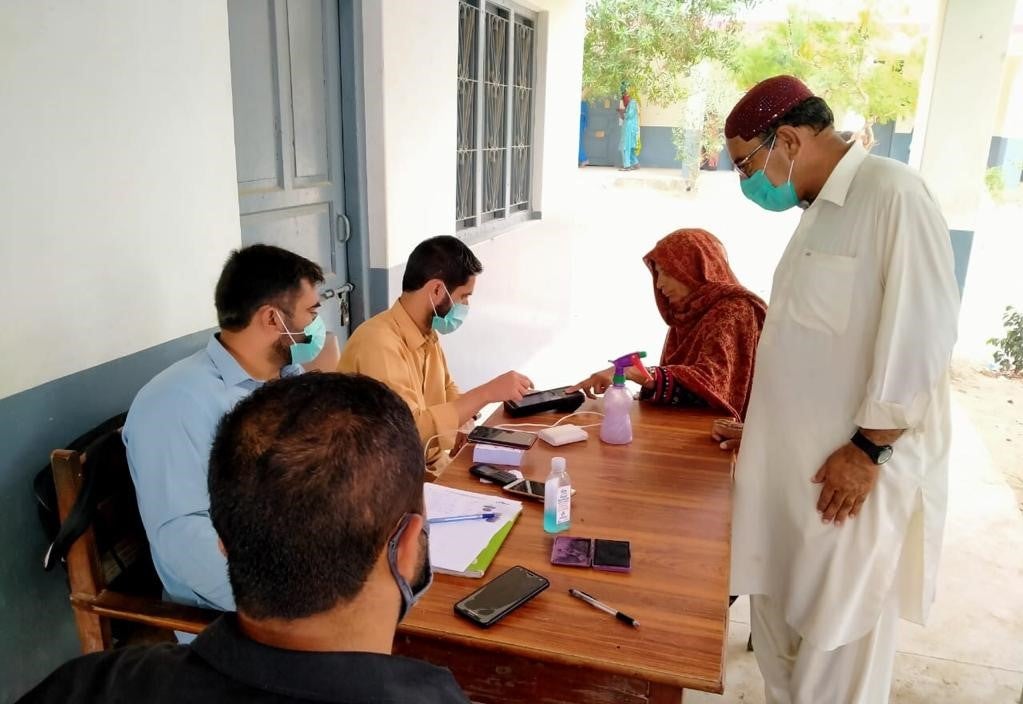 Beneficiaries receiving emergency cash transfers in Pakistan during COVID-19
Beneficiaries receiving emergency cash transfers in Pakistan during COVID-19
This blog is part of the 'Act Now Pakistan' series focusing on ideas, policies and actions for Pakistan to recover stronger and better as the COVID-19 crisis subsides.
The unprecedented emergency posed by the coronavirus (COVID-19) will have a devastating impact on the lives of the poor. Nearly 24 percent of Pakistan’s 210 million people are below the poverty line. The country requires a rapid response to protect its poor from becoming even worse off.
The national lockdown imposed on March 13 is a necessary pre-emptive step to contain the health emergency. But it compounds socioeconomic risks for the vulnerable who have lost their jobs or can’t access health and social programs.
In addition, the pandemic puts women, who are already disadvantaged in the labor force, at greater risk as they carry the invisible burden of caring for the sick, elderly, and children. One of Pakistan’s initial measures, with support from the World Bank, was to expand its national safety net institution, the Benazir Income Support Program (BISP), to direct additional support to its 4.5 million women beneficiaries.
The national lockdown compounds socioeconomic risks for the vulnerable who have lost their jobs or can’t access health and social programs.
The government also scaled up its flagship cash transfer program, Ehsaas Kafalat, to include 7.5 million additional vulnerable families affected by the crisis — thus increasing by 85 percent its annual budget dedicated to cash transfers. This cash-transfer program is accessible through a free of charge SMS number (8171), which vulnerable people, such as daily wagers and piece rate workers, can use to lodge requests or check their eligibility. So far, it has received more than 46 million requests in a week and identified 7.3 million beneficiaries who will receive Rs 12,000 from a payment outlet after biometric verification.
"My husband is ill and has to stay at home. I'm so grateful that I've received Rs. 12,000 today, it will help us get by for a full month. We are thankful that the government has supported us and stands with us at a time like this," said Ms. Sakina, a resident of Quetta.

Pakistan’s quick action was possible because the country has invested in programs like BISP and Ehsaas Kafalat which form one of South Asia’s largest social safety net systems. They provide quick registration options and reliable payments through state-of-the-art biometric technology. Their online linkage to the national ID database helps prevent duplicate payments while ensuring transparency.
While these investments have achieved results, there’s room for further improvement.
A move towards a dynamic system for updating the National Socio-Economic Registry (NSER) and integration among social program databases will help keep targeting data current and ensure a two-way flow of information.Besides avoiding duplication of effort, a centralized and integrated social registry would also provide data for informed decisions regarding socio-economic policies and initiatives.
No doubt this response is one of the best investments that a government could make in a crisis.
The cash transfers provide purchasing power for people to meet their needs.
Cash transfers will be instrumental in mitigating the impact of the upcoming recession
"I've been unemployed for about a month because of coronavirus. With this aid that the government has given us, it covers the costs of things we need for Ramadan," said Mr. Sarim Mohammad, a resident of Quetta.
If the fiscal space allows, the emergency cash transfers should be considered as an optimal option to rejuvenate local economies.
Along with this, the governments (federal and provincial) need to expand the primary education and children health-related conditional cash transfers to integrate aspects of long-term human development and reduction of inter-generational poverty.


Join the Conversation